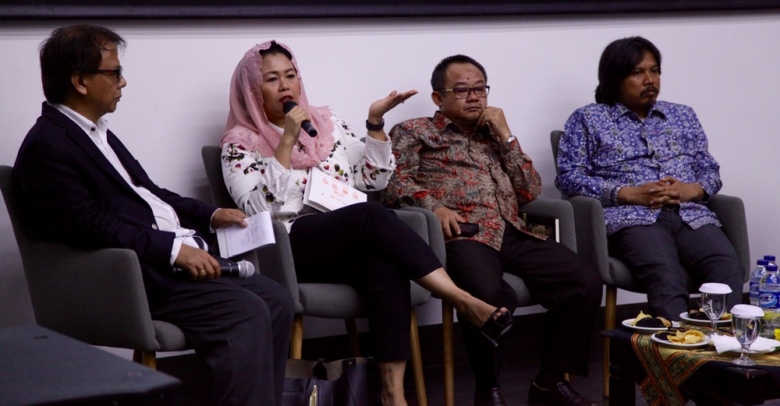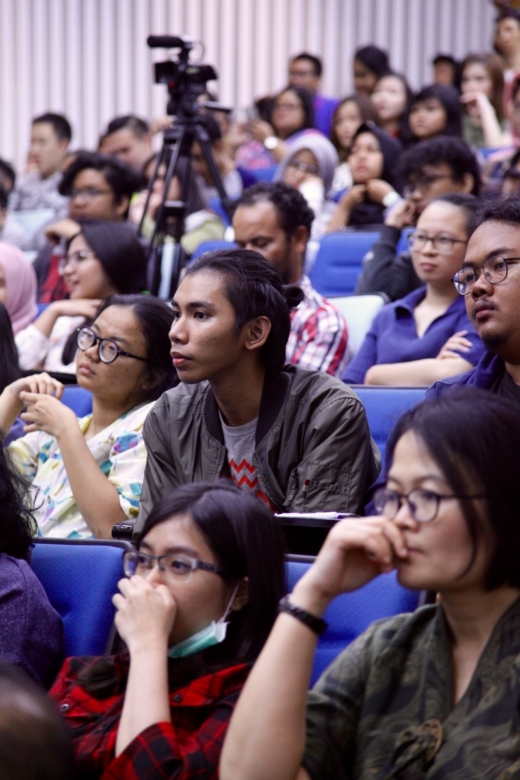Religious freedom and civility are at heart of struggle for democracy in Asia

JAKARTA – Maybe it is time to stop asking the question, frequently raised in the West, of whether democracy and Islam are compatible.
The more universal, and salient question, appears to be how any democratic nation can preserve itself if freedom of belief is not protected.
Just how powerful the mixture of politics, nationalism, culture and belief can be was evident at a recent gathering in Jakarta organized by the International Association of Religion Journalists and Sejuk, an association of Indonesian journalists.
Prominent journalists, scholars, analysts and religious leaders from 15 Asian nations revealed how political appeals to religious and secular constituencies have roiled democracies across the region and the world.
No one belief system is exempt. Consider:
- In Myanmar, the military, with the support of extreme nationalist Buddhist leaders, have engaged in what many throughout the world have described as the “ethnic cleansing” of its Rohingya Muslim minority population.
- In India, Hindu extremists have carried out increasing attacks against Christians, Muslims and other minorities amid concerns that a rising nationalist movement in government tacitly supports the violence.
- In the United States, where Christians make up the majority, two of the most unpopular candidates in modern presidential history raced to the bottom in a campaign that left in its wake a polarized and sharply divided nation. The winner, Donald Trump, launched populist attacks on religious and ethnic minorities and promised retribution to anyone who disagrees with him; his challenger, Hillary Clinton, labeled tens of millions of Americans who supported her opponent “deplorables.”
And here in the capital of the world’s largest Muslim-majority nation, concerns for the future of democracy were heightened when a popular Christian governor was accused of blasphemy and jailed in what was widely considered a blatant political effort to unseat him.
But leading figures in government, journalism, academia and religion declared that the reprisals against former Governor Basuki Ahok Tjahaja Purnama do not mean that Islam is incompatible with democracy.
“Islam puts emphasis on many principles, equality, justice and also human dignity, and these are some of the principles that clearly are also the main bones of democracy,” said Yenny Wahid, director of the Wahid Institute and a leading voice of moderate Islam in Indonesia.
Still, what happened to Ahok has created a new sense of urgency about protecting democratic freedoms, conference participants noted.
We have democracy. … We have had multiple free and fair elections,
Wahid said at a concluding seminar on Islam & Democracy in Indonesia. It is not something we should take for granted.
You can watch Part 1 of the lively conversation on Islam & Democracy in Indonesia right here. In addition, you can go directly to the ARDA YouTube channel to watch all three parts of the session: Part 1 is here on YouTube, then Part 2 and Part 3.
Protecting freedom
Several studies have shown Muslims throughout the world have favorable attitudes toward democracy. For example, in the latest wave of the World Values Survey, conducted from 2010-14, more than 80 percent of respondents in Algeria, Pakistan, Egypt and Turkey said a democratic political system was a very good, or fairly good form of government.
But democracy is relatively new in many Muslim-majority nations. And the transition to it is rarely smooth.
Democracies in nations such as Indonesia, Turkey and Pakistan operate amid pressures to protect religious and political freedoms amid ethnic and religious tensions, the shadows of past military coups and the unaddressed human rights abuses of authoritarian governments such as the Suharto regime in Indonesia.
Research has shown that the clearest path to a strong, vibrant democracy is when the political and religious freedoms and dignity of all groups are not only protected by the judiciary, but respected within the culture.
Or, in the words of Kwabena Asamoah-Gyadu, professor of contemporary African Christianity at Trinity Theological Seminary, Accra, If you oppress people, they will be violent, if you despise the religion of others, there will be violence. We have got to recognize other people’s spaces and respect them for who they are.
Many people, particularly those in areas suffering from conflict, appear to be hearing the message.
It was certainly a recurring theme at the October conference at Universitas Multimedia Nusuntara in Jakarta.
A wide range of analysts from journalists to democracy activists to those at the highest levels of government spoke of the need for people from various ethnic and religious groups to work together in mutual respect.
What we want to build in this country is the importance of respecting differences,
Abdul Mu’ti, secretary general of Muhammadiyah, a moderate Islamic movement, said at the seminar on democracy and Islam. We can express our identity, actualize our ideas, respect our differences, with full respect to others who are different.
How important is it for different belief groups to respect one another?
Harmony is a must. Harmony is a must,
Indonesian Foreign Minister Retno Marsudi said in a special address. There is no alternative. Otherwise, Indonesia cannot survive.
But harmony is not a given,
she added. It must be nurtured by both the government and society.
Hopeful signs
The good news is that there are many hopeful signs.
In Turkey, millions of people gathered in July to mark the first anniversary of a failed coup attempt. United in preserving democracy, both supporters and many opponents of President Recep Tayyip Erdoğan helped prevent the attempted July 15, 2016, takeover by a faction of the military.
Everyone attending the IARJ conference heard story after story of reporters throughout Asia courageously pursuing their craft amid threats of arrest, police investigations and being targeted by extremist groups.

And the excitement was palpable in the packed university auditorium for the final seminar on democracy and Islam. The seminar was jointly sponsored by the Association of Religion Data Archives, Sejuk, the IARJ and the university.
Meghana Bahar, a Malaysian journalist, tweeted at one point a photo of the crowded hall with the observation, Picture of #democracy – room full of students, activists & journalists discussing #religion openly.
In summing up the seminar, moderator Endy Bayuni, editor of the Jakarta Post and executive director of the IARJ, said, We can still remain positive and optimistic about the future of democracy.
But it requires good people to stand up for freedom and civility, and to oppose violence and hate speech.
We all have to do our part,
Bayuni said. If we want democracy to continue, it’s up to the people as well.
What Muslim-majority nations do not have to worry about is whether democracy is possible, many conference participants said.
Democracy and Islam are compatible,
declared Marsudi, the foreign minister. It works.
Images courtesy Universitas Multimedia Nusuntara
DAVID BRIGGS is a founder of the International Association of Religion Journalists (IARJ). A long-time journalst, David served as the Associated Press religion writer for many years. He also writes the Ahead of the Trend column for the Association of Religion Data Archives (ARDA) and coordinates the Global Plus column for ARDA as well.
Care to read more?
We invite anyone interested in the IARJ to continue watching our website and our Twitter feed for more reflections on this global conference over the next few weeks. If you are a journalist with a focus on covering religious and cultural diversity, then please consider joining our organization.
